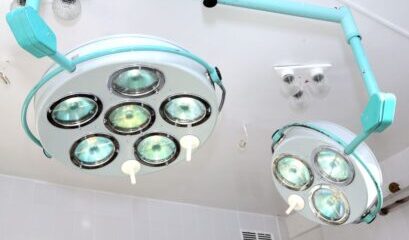Deal focus: Affinity secures 3x return on Malaysia medical tourism play
- IHH Holdings, other strategics always seen as likely buyers of Island Hospital
- Affinity oversaw doubling in bed capacity, professionalisation of operations
- Holding period drawn out by COVID, which temporarily halved EBITDA
Malaysia-based Island Hospital is set to become the 11th full exit from Affinity Equity Partners’ fourth Asia fund, a USD 3.8bn vehicle now in its 10th year with a handful of positions still to be realised.
It also means the Southeast Asian portion of the portfolio is cleared, following sales earlier this year of positions in Indonesia’s Sido Muncul [IDX:SIDO] and Malaysia’s Leong Hup International. This is a significant development, given the geography’s reputation as a hard-to-exit market.
“People don’t spend a lot of time thinking about the buyer universe, but when we invested in Island Hospital, we knew the next owner would be a strategic buyer,” said Benny Lim, a partner at Affinity.
The buyer is IHH Healthcare [KLSE:IHH], one of the region’s largest private hospital operators. It has agreed to acquire 100% of the business for MYR 4.2bn (USD 966m), taking out Affinity’s 78% and 22% held by Mark Wee, the company’s founder and CEO, and senior doctors at the hospital. Affinity, which invested in 2015, making an equity commitment of about USD 200m, is set for a more than 3x return in US dollar terms.
Rippledot Capital Advisors is the sole financial advisor representing the sellers in the transaction.
The private equity firm’s holding period was longer than intended because of pandemic-related disruptions – a planned sale process was abandoned in 2020 – but its conviction regarding the outcome is based on Island Hospital’s robust competitive position. In a country looking to boost medical tourism revenues, of which 90% come from Indonesia, this is the industry’s standout player.
“There are more than 60 hospitals in Malaysia licensed for medical tourism, yet one – Island Hospital – has a 35% market share. One in three Indonesians coming to Malaysia for treatment visit Island Hospital,” said Lim. “There is nothing else that compares to it.”
Bigger business
Malaysia received 1.1m healthcare travellers in 2023, twice the 2011 number, and revenue has grown from MYR 500m to a projected MYR 1.7bn over the same period, according to the Malaysia Healthcare Travel Council. Its goal is to reach MYR 2bn by 2025, by which point the overall economic impact of medical tourism is estimated to be MYR 10bn.
Patient inflows have increased on the back of rising medical tourism costs in Singapore – Lim claims that some speciality treatments are one-third the cost of Singapore and in some cases cheaper than in Indonesia – but Island Hospital has benefited from more than just industry tailwinds.
When Affinity acquired the Penang-based business, it was founder-led; the private equity firm purchased part of Wee’s holding and the entire stake owned by Tony Tan, founder of Parkway Holdings, which became part of IHH 10 years ago. Affinity set about strengthening core operations, upgrading management and technology and introducing global-standard systems and processes.
Island Hospital’s capacity was expanded from 300 beds to 600 beds and the service offering was adjusted to better meet the needs of cross-border patients, especially those from Indonesia. Bumrungrad International Hospital [BKK:BH] in Bangkok, considered the leading medical tourism establishment in the world’s leading medical tourism market, was a helpful reference point.
“Health screening was a big part of the transformation plan because most medical travellers come for a comprehensive health screening. Someone can arrive from Jakarta in the morning, get the check-ups, receive feedback reports in the afternoon, and then decide whether they need any follow-up checks or procedures,” said Lim.
“We also focused on key specialities like oncology, cardiology, orthopaedics and gastroenterology because we know they are key concerns for Indonesians.”
Further upside?
Island Hospital generated MYR 573.8m in revenue and MYR 73.4m in net profit for the 2023 financial year. EBITDA – which was approximately MYR 162m for the 12 months ended June 2024, based on IHH’s 26x acquisition multiple – has grown fourfold since Affinity’s investment. However, it fell by more than half during COVID-19 when the 50% of revenue from medical tourism was abruptly cut off.
“In the first two months of COVID we were in the red and had to cut a lot of costs – but we didn’t let anyone go,” said Lim. “We haven’t taken a single dollar out of this company; everything has gone into upgrades.”
The recovery saw Island Hospital increase its market share from 25% to the current 35%, and Affinity believes there is plenty more growth to come. A vacant plot of land adjoining the hospital has been earmarked for development, with space to increase overall bed capacity to 1,000, add more medical suites, and build a hotel to accommodate medical tourists.
“It took a couple of years to negotiate the hospital expansion because we bought land from the government as well,” Lim added. “We had to be very specific about our plans – we are driving medical tourism and creating jobs, not doing real estate development – but all the approvals are in place.”













